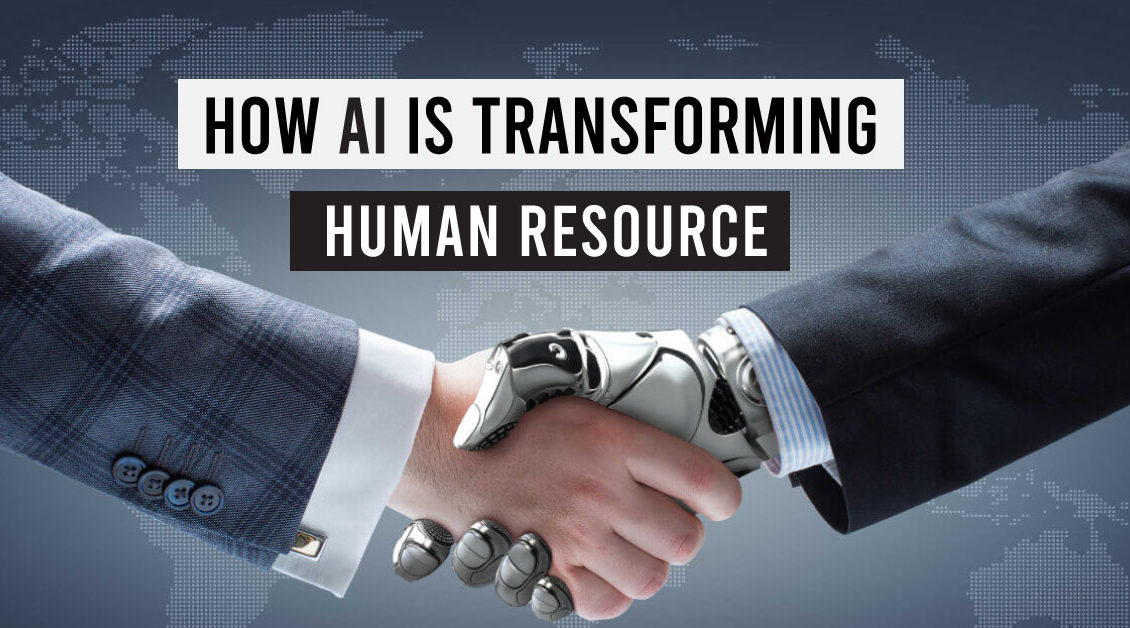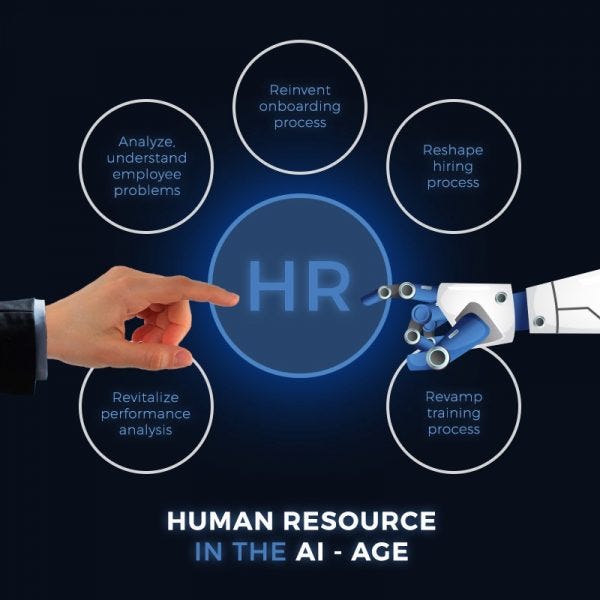According to a recent report, 72% of executives believe AI will be the most significant future business advantage. Looking ahead to 2025, the report predicts 70% of organizations will have operationalized AI architectures. Businesses benefit from AI-powered workforce analytics, predicting employee turnover and identifying areas for skill development. Within this progress, the fusion of AI in HR and people analytics holds untapped potential for leaders. In modern times, AI can do wonders for businesses when integrated with online HR training software.
The undeniable transformation brought by AI in HR is evident. HR teams increasingly use AI to streamline recruitment, onboarding, employee development, and performance management. This shift has reshaped businesses, driving efficiency and predictive capabilities. Amidst this revolution, AI in HR navigates talent management with precisions.
This article will discuss how AI changes HR and its considerations for businesses.
Understanding the Need for AI-Powered HR
AI in HR offers various benefits that cater to the complexities of organizations. One of the pivotal aspects is the augmentation of decision-making processes. By analyzing vast amounts of data, AI algorithms provide HR professionals with data-driven insights, enabling them to make informed and strategic choices. Whether it’s in the context of talent acquisition, employee engagement, or performance evaluation, AI’s predictive and analytical abilities empower HR teams to identify patterns and trends that might otherwise go unnoticed.
AI in HR enhances the productivity by automating tasks, finding hidden insights, and making smarter decisions through data analysis. HR teams adopt AI for streamlined processes, like recruitment and performance management. By automating routine tasks, facilitating insightful data analysis, and enabling more personalized interactions, AI empowers HR professionals to keep pace with the evolving demands of the workforce and stay at the forefront of strategic organizational growth.
Embracing AI-powered HR is no longer a luxury but a strategic necessity for forward-thinking businesses committed to harnessing the full potential of their human capital.
Reshaping HR Strategies Through AI
Automate repetitive tasks
AI (Artificial intelligence) can seamlessly handle low-value tasks, ranging from benefits administration to addressing common employee queries about procedures and policies, even processing leave requests. This leaves HR professionals to alleviate routine tasks and channel their efforts into mentoring, offering constructive feedback, inspiring and engaging employees, and cultivating robust workplace connections. Organizations that embrace AI are noted to be 19% more effective in reducing the time HR spends on administrative duties.
Recruiting and hiring
Improving recruitment and finding new talent is one of the most important things Artificial intelligence has been used for. AI in HR has made hiring new employees faster by automating tasks like posting jobs and sending offers. AI helps people who find tech workers use tools like LinkedIn and GitHub to talk to possible candidates. With AI, they can make messages for each candidate, making them more interested. AI can also see how many people say yes to a job, so recruiters and managers can determine what works best.
Onboarding
AI can create and automate the process of welcoming new employees, like confirming employee documents, providing initial training, managing administrative jobs like giving IDs, and setting up access to company technology.
It also lets the HR staff focus on more complex tasks. AI can even personalize onboarding by looking at data about each employee, like their skills and preferences, and giving them training that suits them.
Exploring AI Applications in HR Operations
AI-based text analysis
AI-driven text analysis systems can assist in interpreting and comprehending employee sentiments by classifying feedback into positive, neutral, or negative segments. This framework offers a glimpse into the ongoing emotions of your workforce in their day-to-day experiences. Through integrating survey responses with additional contextual details like historical data and industry patterns, AI unleashes anticipatory understandings regarding workforce engagement, turnover risks, and beyond. The conventional annual employee engagement survey can shift from being a stationary snapshot of employee sentiment to evolving into a crucial, dynamic evaluation of the underlying social structure that supports the entire organization.
Feedback Response
AI-powered systems excel at analyzing feedback data, whether it’s from performance reviews, surveys, or other communication channels. These systems don’t just categorize feedback; they understand its nuances, context, and underlying sentiment. Addressing feedback, especially negative feedback, could be a reactive process. By swiftly analyzing incoming feedback, AI can proactively identify potential issues before they escalate.
Payroll Automation
Employing AI-driven payroll systems enables the automation of repetitive and labor-intensive payroll responsibilities, such as data input and computations. This results in time savings and diminishes the likelihood of expensive inaccuracies. This streamlined approach enhances efficiency and significantly mitigates the potential for costly errors.
Chatbot Interactions
AI-driven chatbots can forge tailored and distinctive employee journeys through personalized interactions and historical insights. Although onboarding is inherently individualized, chatbots adeptly respond to common new-hire queries regardless of time, ensuring accessibility beyond colleague availability.
Performance Management
With the capabilities of Artificial Intelligence, managers and HR professionals are empowered to evaluate employee performance comprehensively. This evaluation is achieved by meticulously scrutinizing various data points encompassing productivity, punctuality, attendance records, and the caliber of work delivered. This analytical exploration provides a detailed understanding of individual performance. It serves as a dynamic platform for identifying nuanced opportunities and areas that hold promise for refinement and progress within the organizational framework.
Benefits of Managing HR Operations with AI
Better Talent Acquisition and Retention
According to a recent report, AI adopters are 13% more efficient in candidate screening and 16% more effective in gaining a competitive talent acquisition edge. AI swiftly evaluates resumes, matches skills with top performers, and uses chatbots for candidate information. It efficiently scans past applicants, identifying potential fits. AI identifies disengagement, boredom, unproductivity, and job-seeking tendencies. AI promptly alerts HR professionals through their online HR training software by tracking. This enables timely intervention to resolve issues and retain employees.
Efficient and Effective Employee Training
AI in employee training is another benefit for businesses, especially with dedicated training software. AI excels at pinpointing skills gaps, enabling HR professionals to promptly address and transform weaknesses into strengths. For instance, AI streamlines the hiring process by evaluating resumes, identifying the most qualified candidates, and furnishing recruiters with valuable information for better selection through predictive analytics, enhancing decision-making.
Reduced costs
Using AI-powered software, extensive data sets can be analyzed to discern patterns and trends and suggest economical solutions. There has been a substantial year-over-year rise of approximately 25% in integrating AI into conventional business operations. Moreover, compared to the previous year, there has been a significant surge in the adoption of AI across various facets of business operations. Most executives representing companies that have embraced AI affirm that its implementation has led to increased revenue within the specific business domains where it’s deployed. Additionally, 44% of these executives assert that AI has yielded cost reductions over the years.
Strategic decision-making
AI-driven data analysis in HR uncovers valuable insights from employee information, enhancing productivity. AI empowers managers with strategic insights, improving performance and career growth. Regular interactions and goal discussions remain essential. AI also optimizes HR processes, eliminating biases in recruitment and compensation decisions. It enhances efficiency by addressing challenges through recruitment analytics, targeting cost, speed, and quality metrics.
Also Check: Best practices for Mulesoft SAP integration
Final Words
Realizing the role of Artificial Intelligence in Human Resource Management is essential, offering advantages spanning from elevated decision-making to strategic foresight. Delving into practical applications further showcases how AI in HR can revolutionize talent management, equipping businesses to flourish in today’s dynamic and fiercely competitive environment.
In the HR transformation powered by AI, advansappz plays a crucial part. Through the integration of AI-driven solutions, advansappz empowers HR experts to enhance decision-making, streamline processes, and craft tailored employee experiences.
Frequently Asked Questions
AI is used in HR to streamline recruitment processes by automating candidate sourcing, screening, and matching. It also helps in employee engagement through sentiment analysis and feedback analysis. AI-powered chatbots handle routine HR queries and assist in onboarding tasks. Predictive analytics in AI aids in workforce planning and identifying retention risks. Overall, AI enhances HR efficiency and decision-making.
The impact of AI on HR is significant. AI streamlines the recruitment process by automating tasks like resume screening, saving time and reducing bias. It also enhances employee engagement through personalized feedback and training recommendations. AI-driven analytics provide valuable insights for workforce planning and retention strategies. Overall, AI revolutionizes HR operations, making them more efficient and data-driven.
The future of AI in HR holds great promise. AI will continue to streamline recruitment processes, enhance employee engagement through personalized experiences, and provide data-driven insights for better decision-making. Chatbots and virtual assistants will improve employee self-service, while predictive analytics will help identify talent trends and address workforce challenges. Overall, AI will play a crucial role in making HR more efficient and strategic in the years to come.
















